I think I have a problem understanding spring cloud messaging and can't find an answer to a "problem" I'm facing.
I have the following setup (using spring-boot 2.0.3.RELEASE).
application.yml
spring:
rabbitmq:
host: localhost
port: 5672
username: guest
password: guest
virtual-host: /
cloud:
stream:
bindings:
input:
destination: foo
group: fooGroup
fooChannel:
destination: foo
Service class
@Autowired
FoodOrderController foodOrderController;
@Bean
public CommandLineRunner runner() {
return (String[] args) -> {
IntStream.range(0,50).forEach(e -> foodOrderController.orderFood());
};
}
@StreamListener(target = FoodOrderSource.INPUT)
public void processCheapMeals(String meal){
System.out.println("This was a great meal!: "+ meal);
}
@StreamListener(target = FoodOrderSource.INPUT)
public void processCheapMeals1(String meal){
System.out.println("This was a great meal!: "+ meal);
}
FoodOrderController
public class FoodOrderController {
@Autowired
FoodOrderSource foodOrderSource;
public String orderFood(){
var foodOrder = new FoodOrder();
foodOrder.setCustomerAddress(UUID.randomUUID().toString());
foodOrder.setOrderDescription(UUID.randomUUID().toString());
foodOrder.setRestaurant("foo");
foodOrderSource.foodOrders().send(MessageBuilder.withPayload(foodOrder).build());
// System.out.println(foodOrder.toString());
return "food ordered!";
}
}
FoodOrderSource
public interface FoodOrderSource {
String INPUT = "foo";
String OUTPUT = "fooChannel";
@Input("foo")
SubscribableChannel foo();
@Output("fooChannel")
MessageChannel foodOrders();
}
FoodOrderPublisher
@EnableBinding(FoodOrderSource.class)
public class FoodOrderPublisher {
}
The setup is working, with the exception that both StreamListener receive the same messages. So everything get's logged twice. Reading the documentation, it says specifying a group inside the queues bindings, both the listeners will be registered inside the group and only one listener will receive a single message. I know that the example above is not sensible, but I want to mimic a multi-node environment with multiple listeners setup.
Why is the message received by both listeners? And how can I make sure that a message is only received once within a setup group?
According to the documentation, messages should also be auto-acknowledged by default, but I can't find anything that indicates that the messages actually get acknowledged. Am I missing something here?
Here's some screenshots of rabbit admin




